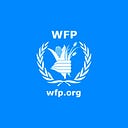Sustaining millions in Cabo Delgado Mozambique
“I am humbled by the determination of people to rebuild shattered lives among continuing violence and horror.”
Vanessa Jones- WFP
Long before the COVID-19 pandemic changed our office lives, I was already working remotely from Rome for the World Food Programme (WFP) Mozambique country office. What changed for me was not being able to visit the country and my colleagues for two years. The last time I was in Mozambique was February 2020, and I returned just in time for Italy’s first lockdown in early March. The conflict in Cabo Delgado was in its third year by then, but between March and November 2020, the violence escalated dramatically. Today, 1.3 million people are in need of urgent humanitarian assistance.
In February this year, I returned to Mozambique, to visit WFP’s emergency nutrition and HIV operation in Cabo Delgado. It is always an immense privilege to go to the field, but after two years writing about programmes that I hadn’t actually seen, this time felt particularly special. I was also going for an important reason: funding for these programmes would end in March, and I was going to help write an advocacy package to send to donors, in the hope that we would be able to continue our project.
The first thing that struck me about Cabo Delgado was its beauty. I arrived at Pemba airport and was driven to the office, which looks out over the Indian Ocean. The sea is stripy with different blues, the beach is lined with palm trees — an unlikely backdrop to large-scale human suffering. Almost a third of people who live in the province have run from unimaginable horrors, leaving behind their homes, farms, livelihoods and everything they’ve ever known. Shockingly, 47 percent of the displaced are children.
The Government of Mozambique has set up temporary camps, but its priority is to resettle people permanently. I went to Metuge district, where, in 12 resettlement camps, people have been given a small plot of land to farm and build a home. Here, I met Doctor Nicolaus, Director of the District Health Authority. “It’s important to give people a choice,” he told me. “In our culture, land means everything and home is somewhere the family has lived for generations so to accept a new one is to acknowledge you’ll probably never go back.”
Despite the trauma which has brought them here, people are determined to keep going as best they can. The day I arrived in Metuge, people were sitting under the shade of the cashew trees, waiting for WFP’s distribution of an energy- and nutrient-dense porridge to prevent malnutrition in young children. The District Health Authority was also present, providing measels vaccinations, deworming tablets and vitamin A supplements.
Is there any friction with the host community, I wondered, considering they don’t have much to spare themselves? Rodrigues Adamo, a community leader from Quissanga, told me that the local people have been very generous. “They say the cashew trees are for the children, meaning we can eat what we want,” he explained.
In a temporary camp in Mueda, I met Paulina. She was giving a cooking demonstration to her neighbours, showing them how to make the most nutritious options out of the food available to them. For her, eating enough and eating well is particularly important as she is HIV positive. To supplement the food distributed by WFP, she grows peanuts and maize.
One in nine adults in Mozambique is HIV positive. Women are disproportionately affected, and many lost access to treatment when they fled their homes. Others, like Viamussa , whose baby is due any day, didn’t know her status until she took a test at the camp’s clinic. Sitting with her five year old son, she told me she’d lost her three other children on the way here, one to conflict, one to acute malnutrition, and one to an accident.
She’s been through more in the last year than anyone should face in a lifetime. Yet she’s still managed to build her own shelter and find work in a neighbours field to help supplement the food she’s given. “I feel okay,” she told me. “I’m on treatment so my baby will be fine.”
Without renewed funding, WFP’s nutrition and HIV operations in Cabo Delgado will stop at the end of March. Viamussa’s baby, and so many others are at serious risk without continued humanitarian assistance.
WFP’s emergency response in Cabo Delgado distributes food to displaced families; prevents and treats acute malnutrition in children and pregnant or breastfeeding women; and reaches people living with HIV and TB with life-saving treatment. Your support is essential to keep these programmes operating, and to extend our reach.
Read more about WFP’s work in Mozambique
